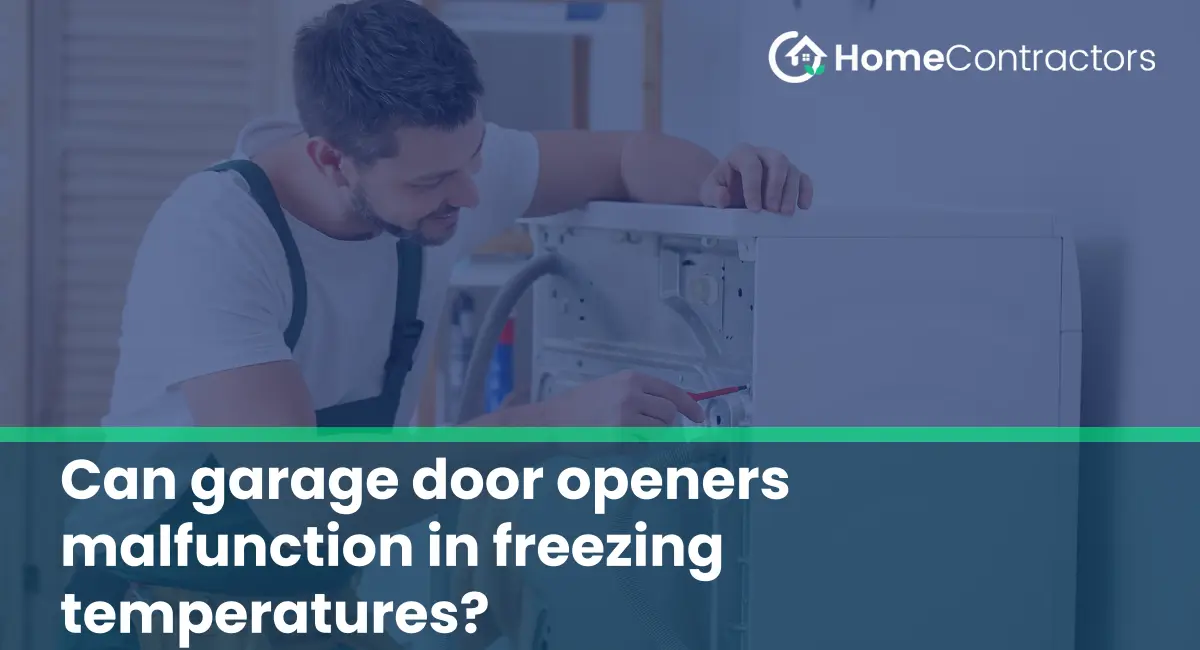Garage door openers are essential for ease of access to your garage, providing convenience and security. However, just like any mechanical device, they can experience various issues, especially in extreme weather conditions. In this article, we will explore whether garage door openers can malfunction in freezing temperatures and discuss the potential causes and solutions to address this problem.
Understanding Garage Door Openers
Before delving into the impact of freezing temperatures, let’s first understand how garage door openers function. A typical garage door opener consists of a motor, a drive system, and a control mechanism. The motor generates the power necessary to open and close the door, while the drive system, usually a chain, belt, or screw, converts the motor’s rotational motion into the linear movement needed to raise or lower the door. The control mechanism, typically a remote control or a wall-mounted switch, allows you to operate the garage door opener easily.
Effects of Freezing Temperatures on Garage Door Openers
Extreme cold temperatures can affect the performance of various components in a garage door opener, leading to malfunctions. Here are some of the potential issues that may arise:
1. Lubrication Problems
Cold weather causes lubricants to thicken and become less effective, affecting the smooth operation of the garage door opener’s moving parts. As a result, the motor may strain to raise the door or fail to provide the necessary power.
2. Battery Drain
In freezing temperatures, batteries tend to lose their charge more quickly. This can affect the battery life of your garage door opener, resulting in reduced power supply and potential malfunctions.
3. Contracting Metal and Mechanical Parts
Metal and other mechanical parts may contract in freezing temperatures, affecting their overall functionality. For instance, the drive system may become stiff or lose flexibility, causing the garage door opener to operate sluggishly or even get stuck.
4. Moisture Buildup
During freezing temperatures, condensation may occur inside the garage, leading to moisture buildup on the components of the garage door opener. This moisture can cause rust, corrosion, and electrical problems, hindering the opener’s smooth operation.
Preventing and Addressing Malfunctions in Freezing Temperatures
To minimize the risk of garage door opener malfunctions in freezing temperatures and ensure smooth functionality throughout the winter, consider the following preventive measures:
1. Lubricate Moving Parts
Regularly lubricate the moving parts of your garage door opener with a high-quality lubricant suitable for cold temperatures. This will help prevent the components from becoming stiff and promote smooth operation.
2. Insulate Your Garage
Proper insulation of your garage can help regulate the temperature, preventing extreme cold conditions that can negatively impact the garage door opener. Insulation materials such as weatherstripping and insulating foam can help in maintaining a more stable temperature.
3. Replace Batteries
Regularly check and replace the batteries in your garage door opener’s remote control and wall-mounted switch. This will ensure a consistent power supply and prevent potential battery drain in freezing temperatures.
4. Minimize Moisture
Take steps to minimize moisture inside your garage. Keep the space well-ventilated and use a dehumidifier if necessary. This will help prevent moisture buildup and reduce the risk of rust, corrosion, and electrical problems.
Garage door openers can indeed malfunction in freezing temperatures due to various factors such as lubrication problems, battery drain, contracting metal parts, and moisture buildup. Taking preventive measures such as lubricating moving parts, insulating the garage, replacing batteries, and minimizing moisture can significantly reduce the risk of malfunction. Regular maintenance and care during winter months will help ensure that your garage door opener continues to function smoothly, providing the convenience and security you rely on.
